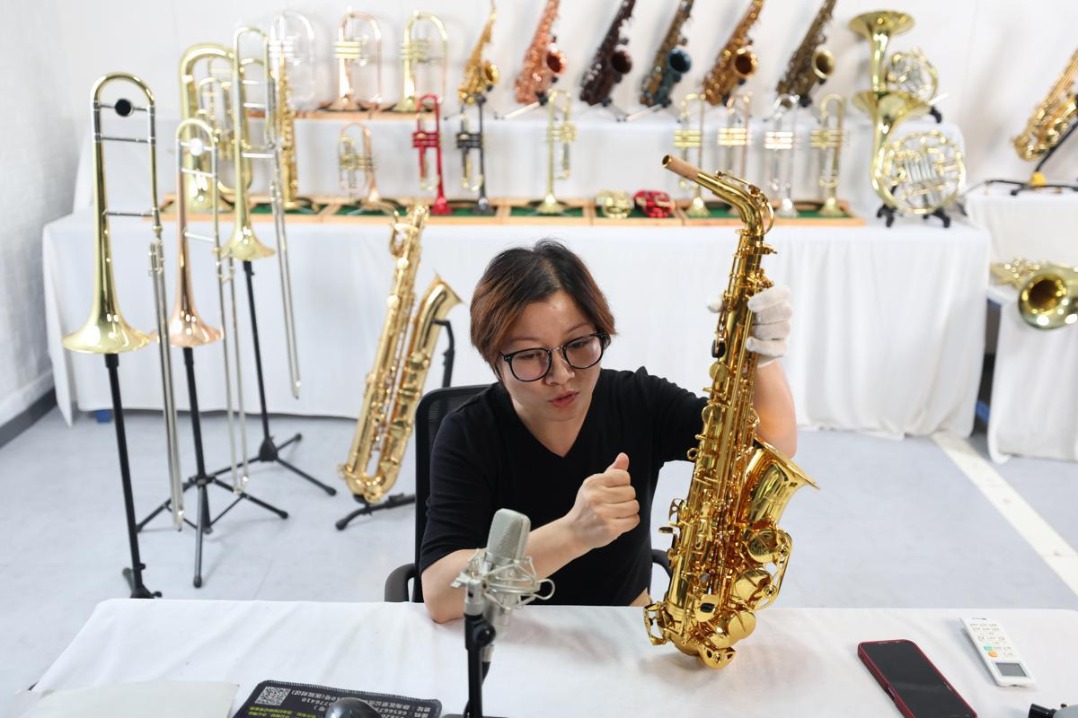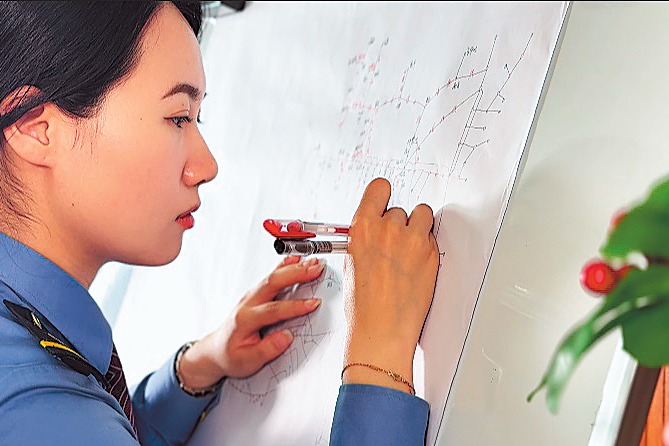Word-of-mouth keeps tradition alive

Young Cantonese storytelling enthusiast helps stem decline of intangible cultural heritage

Peng Jiazhi, 28, stages Cantonese storytelling performances in a chess room at Guangzhou's Cultural Park every Monday morning.
During each performance, he speaks about 24,000 Chinese words in two hours, using varying pitch, facial expressions, gestures, an eye-grabbing board and a folded fan to convey scenes mostly from ancient stories, such as Heroes in Sui and Tang Dynasties and Romance of the Three Kingdoms.
He may seem young to be teaching others the art of Cantonese storytelling performance, a provincial intangible cultural heritage, but his passion for the art since childhood has made him the ideal person to carry on the tradition.
During his childhood, Peng, a Guangzhou native, heard stories from his grandmother about the Japanese bombing the city and from his grandfather about ancient legends and his own experiences. Combining this with information from books and audio resources, he retold stories to his classmates during breaks at school.
When he was 14, after reading that master Yan Zhitu had resumed Cantonese storytelling performances after the media brought attention to the decline of the tradition, Peng decided to become a disciple of Yan. He took it up as a profession after university.
Cantonese storytelling requires four basic skills-writing, speaking, performing and commenting.
"In commenting, a storyteller combines his own thinking with the stories. It is the highest requirement," Peng said. "In telling Romance of the Three Kingdoms, for example, different people express varying thoughts. People with different values make different comments."
To prepare for a performance, he might need to read many versions of the story, talk to an expert on ancient weapons, walk along local roads depicted in the story, and develop gestures. On stage, he occasionally adds impromptu touches by making humorous references to current affairs.
Mastery lies in the detail. For example, a character might stroke his beard in unique way, a technique employed in Cantonese Opera.
To learn about the gestures used in the traditional art form, Peng studied under Bai Yunfeng, a Cantonese Opera master.
Peng is the youngest of the three Cantonese storytellers still performing, with his masters Yan Zhitu and Yao Huanran in their 70s. The audience consists mainly of elderly people and children.
A 79-year-old man, surnamed Zhang, is a regular listener at Peng's performances in Cultural Park.
"This young man tells vivid stories," he said. "Members of my family come occasionally, not often. Those who come every week are primarily senior people. Young people have to work and don't have time. Even if they have time, they are not interested. I think it's because they haven't read old books. When they have, they will like storytelling."
High school student Pan Weihua attended a performance for the first time this month. "I first heard Cantonese storytelling on the radio when I was in middle school, because my dad loves it," Pan said. "Few people I know listen to it, though."
Apart from the park, Peng also performs in schools. Every year, about 3,000 students attend Cantonese storytelling sessions on campus in Guangzhou, the capital of Guangdong province.
He is also engaged in promoting the tradition, training artistic performers and developing cultural creativity products, and promoting Cantonese culture via social media. Support from the city and district authorities helps preserve the intangible cultural heritage, he said.
Preparations are underway to hold a Cantonese storytelling contest next year. Peng hopes to make the contest a regular event and bring performances to theaters.
Today, he has more than 20 disciples, all primary or middle school students. "It's not difficult for them to take up the profession and carry on the tradition. The key is whether they are willing or not. They will have to think of ways to make a living.
"The demand is not there yet. So I'll focus on expanding the market and seeking more support to help explore a new path for the development," Peng added.
"I hope to raise awareness of intangible cultural heritage among young people. After all, it is the basis of our Chinese tradition."
Gu Caijuan contributed to this story.
- Prospering Xizang sees surge in overseas visitors
- Couple who lied about panda abuse sentenced
- Senior obstetrician buried in Henan after sudden death
- China sends 11th peacekeeping police unit to South Sudan
- Influencers from around globe begin discovery tour of Ningxia
- Guidelines issued for sale of anti-malaria medication in Guangdong province





































